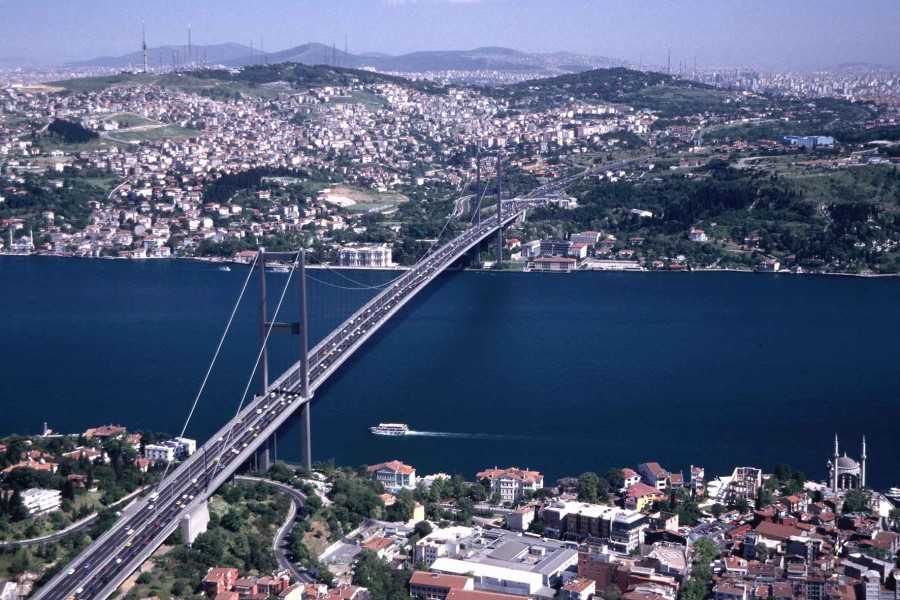ISTANBUL— From Saturday’s Globe and Mail
Published Saturday, Jul. 09, 2011 2:00AM EDT
As you fly into Istanbul, what you see below is a vivid illustration of our era’s great economic rebalancing: Expanding across endless rolling hills like frost crystals on a pane of glass are hundreds of thousands of houses and apartments, most of them owned by the more than 10 million new residents of this city who just a generation or two ago were shack-dwelling peasants in the country’s Asian east.
Similar tableaux will strike you, with equally dramatic force, as you enter Sao Paulo, Shanghai or Cairo. Never before in history have so many people escaped the most extreme forms of poverty. Never have so many been able to own homes and cars, to borrow money, to have a shot at education.
Yet, the view from 10,000 metres is misleading. When you get down on the ground and enter these new neighbourhoods, there’s a palpable sense of tension and frustration. These people are rather misleadingly classified as “middle class” – so called because they’re neither very poor nor very rich, and because they own things – but they’re barely getting by.
The staggering economic growth that has transformed Asia, the Middle East, Africa and South America in recent years hasn’t raised all ships with equal speed. The rich (typically less than 5 per cent of the population) have gained extraordinarily. The very poor (typically at least 40 per cent) have gained, too, but not as much. But the middle class, though growing, hasn’t gained a larger share of the economic pie, or a higher standard of living.
This combination of declining poverty and increasing inequality is producing a new sort of politics. In the world’s poor countries – where nine out of 10 people remain “very poor” by our Western standards – the struggle for power is no longer a simple matter of rich versus poor.
Chilean economist José Gabriel Palma has just produced an important study that looks at how income is distributed within countries. Using new data, he has been able to examine the fine grain of change. Inequality, he finds, is not so simple: In Latin America and sub-Saharan Africa, things are becoming more equal; in Asia, less equal (the rich are getting richer far more quickly than the poor are improving their lot). Little has changed in the Middle East.
But what’s interesting is what he finds about people with middle incomes – typically those just able to buy things such as housing and cars for the first time. These people generally have about half the income in almost every country.
Andy Sumner, a British scholar at the Washington-based Center for Global Development, looked at the political ramifications of Dr. Palma’s breakdown and asked a provocative question: “Are the middle classes the new revolutionaries?”
“The middle classes generally get half of the economic pie wherever you look, and are incredibly successful about protecting their half,” Dr. Sumner notes. As a result, he says, “politics is increasingly a fight for the remaining half between the richest 10 per cent and the poorest 40 per cent … between the very rich and the very poor over who can win over the middle classes.”
Before, much of the world had either the type of free-market, right-wing politics dominated by the wealthy – as found in Colombia, Mexico and Peru today – or the type of state-heavy, left-wing politics ostensibly aimed at the very poor, as found in Cuba, Venezuela and Belarus.
But increasingly, in countries where those fragile middle ranks are growing, we’re seeing a different sort of politics dominating – and taking hold in lasting ways. Turkey, Brazil, Chile and Poland, for instance, are seeing the dominance of a type of political party that has both free-market economics and activist tax-and-spend policies – with the tax coming from the established middle and upper classes, and the spending up for grabs.
“A growing global middle class does seem likely to reinforce effective government that manages moderate redistribution while retaining investor confidence in the likelihood of continuing growth and price stability,” Dr. Sumner says. One benefit is that such politics are actually better at helping the poor than the left-wing counterpart – and much better at grabbing a share from the rich than the right-wing counterpart.
The growing but economically punished middle classes, Dr. Sumner suggests, may well “lock in” this new politics – producing the long-term stability we’ve seen in Brazil and Turkey, as the people in the middle fight for their corner. It might be just what the world needs.
via The new global middle fights for its corner – The Globe and Mail.


Leave a Reply